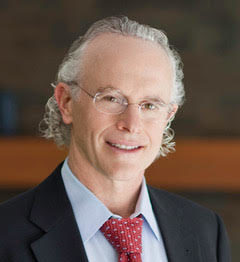
The federal government and policymakers need to fully engage experts in geriatrics and long-term care medicine to help stop COVID-19’s deadly toll on nursing homes, a long-term care expert told House Democrats on Monday.
“If we had been heard and fully engaged, many lives could have been saved,” said Michael Wasserman, M.D., CMD, geriatrician and president of the California Association of Long-Term Care. His comments came during a roundtable discussion regarding COVID-19’s impact on nursing homes hosted by the House Democratic Caucus Task Force on Aging and Families.
Wasserman said experts in geriatrics and long-term care medicine knew that the disease would be lethal to seniors in nursing homes. But the federal government failed to prioritize resources for nursing homes, leading to “tens of thousands” of deaths among residents and workers.
He called for these experts to be “active participants” in policy and decision-making processes and called for more board-certified medical directors in long-term care facilities. He said that clinical experts are “crucial” during medical emergencies like the current public health crisis.
“For too long, this key position has been minimized. The negative impact of this has been amplified by COVID-19. CMS has requirements for nursing home medical directors but many homes ignore them,” Wasserman said.
“Trained medical directors must be allowed to perform their duties without undue influence from nursing home ownership. There should be no quid pro quo related to admissions and medical directors should be free to provide clinical and administrative leadership without fear of losing their position,” he added.
Wasserman noted that professional stakeholders and organizations have called on the Centers for Medicare & Medicaid Services to develop a national registry of certified medical directors. He said the registry would be easy to implement, and the transparency could be vital in the pandemic fight.
“It’s time to change that and provide transparency to this important role,” Wasserman said.
More investments in workers
Staffing shortages and low wages were problems frontline nursing home workers faced long before the pandemic, according to Chris Brown, an Illinois nursing home worker who also spoke.
He told lawmakers Monday that the issues have been exacerbated thanks to the pandemic and called for more investment into nursing home workers.
“I have to choose between keeping the lights on and protecting my health,” Brown said.
“It will be easier to find people to do this if we are paid what we are worth, if this work is valued the way it’s supposed to be,” he added.





